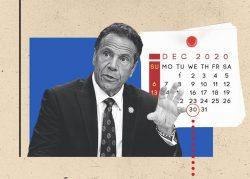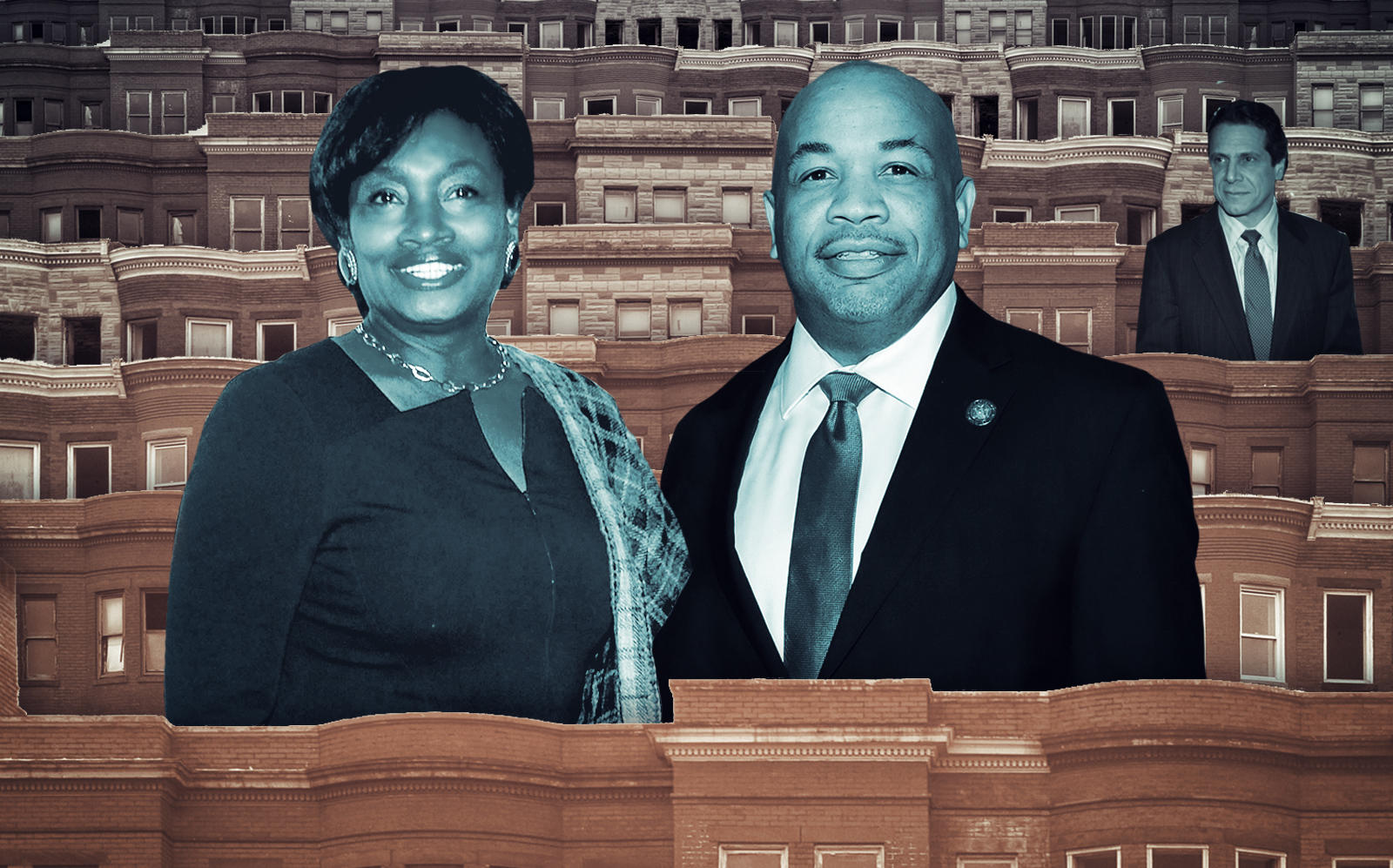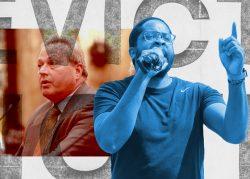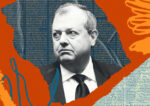 Cuomo to ease requirements for rent relief
Cuomo to ease requirements for rent relief
Trending
Lawmakers rush to pass more limits on residential evictions
Move comes hours after governor says current regime will be extended

State lawmakers are racing to pass legislation before the end of the year to significantly expand upon the existing limits on residential evictions.
A legislative memo, reviewed by The Real Deal, outlines what could be included in a new bill, which sources say has yet to be printed.
As written in the memo, the measure would freeze all eviction and mortgage foreclosure proceedings for two months. The expanded limits on evictions would apply to both non-payment and holdover residential evictions until July 1, 2021. Other measures, including a bill that would have halted any evictions for a year after statewide Covid-related restrictions lifted, have not moved forward.
While the draft memo does not suggest that the legislature has embraced the worst-case scenarios for the real estate industry, it would be a departure from Gov. Andrew Cuomo’s approach, which has been to extend and modify the existing Tenant Safe Harbor Act rather than renew a blanket ban. The state’s initial moratorium on eviction filings, which was put into place in March, lifted in June.
Cuomo subsequently extended those limits to eviction filings from before March 2020. That expansion will expire Dec. 31, although the governor said in a press conference on Wednesday that he planned to extend it. Lawmakers signaled earlier this month that they intended to take further action on an eviction ban.
Sources told The Real Deal that the governor is not participating in legislative negotiations on the eviction bill.
“The standard for the current moratorium was set by the original Safe Harbor legislation passed by the legislature and we respected the legislative intent, but we continue to discuss next steps with the houses,” Rich Azzopardi, senior advisor to the governor, said in a statement.
Queens Democrat Michael Gianaris, the deputy Senate majority leader, said that both the Senate and Assembly are committed to strengthening protections for renters, and that the legislature planned to advance a measure that was “certainly more” expansive than the limits Cuomo has put in place.
“The whole point of taking legislative action is that the executive order does not provide enough protections for tenants,” Gianaris said. He declined to provide more specifics, but said that the legislature was working to pass a bill before the end of the year.
Read more
 Cuomo to ease requirements for rent relief
Cuomo to ease requirements for rent relief
 Landlord groups slam lawmakers’ eviction moratorium push
Landlord groups slam lawmakers’ eviction moratorium push
 Last-minute reprieve stops city’s tax lien sale
Last-minute reprieve stops city’s tax lien sale
According to an analysis by the Furman Center, 28,490 eviction filings were entered into the system between June 20, when filings were able to move forward, and Nov. 29 — a significant decrease from past years.
The draft measure would require tenants to fill out a hardship declaration, provided by and returned to their landlord, in order to qualify, rather than filing an affidavit in court. On Monday, Assembly Speaker Carl Heastie told reporters that he favored eviction limits that would not require tenants to prove eligibility in court. A representative from his office did not immediately respond to a request to comment.
For tenants who have received default judgments for failing to appear in court, landlords would have to petition for a new hearing. Tenants could also petition to have the default judgment removed before or after the hearing. In November, after 15,000 renters failed to answer petitions, the New York Court system sent notices to 40,000 renters who were at risk of receiving default judgments, according to Law360.
Landlords would have some recourse to evict tenants who are a nuisance. If a court finds a tenant is acting “persistently and unreasonably” in a way that affects the others’ use and enjoyment of an apartment, or is a safety risk, they could still be evicted.
The legislative memo also outlines additional protections for property owners against foreclosures and tax lien sales. Those who own five or fewer housing units (one of which would need to be the owner’s primary residence) could avoid mortgage foreclosure or a tax lien sale until July 1, 2021, if they submit a hardship disclosure.
Legislators are also considering staying all ongoing foreclosures for 60 days to give homeowners time to file disclosure forms and courts time to comply.
At the moment, the future of the city’s tax lien sale — originally slated for May, but delayed seemingly indefinitely — is up in the air. The law governing it expires at the end of this year, and despite pushes from the de Blasio administration to renew it through 2024, the City Council declined to take up the issue. Cuomo, meanwhile, suspended all lien sales in the state through Jan. 1.
Housing advocates and elected officials have pushed for an overhaul of the sale. Earlier this month, State Attorney General Letitia James called on Johnson and de Blasio to transfer foreclosed properties to community land trusts. A measure backed by de Blasio, and introduced by Council member Adrienne Adams, would have renewed the sale through 2024, while exempting certain homeowners affected by the pandemic through 2021. But the bill, which Adams described as a starting point, didn’t move forward.
Council speaker Corey Johnson indicated last week that the legislative body needed to address concerns that the sale disproportionately affects minority property owners, but said he was hopeful that members will “come up with something in the new year.”




